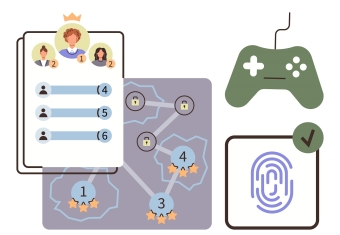Confidence: A feeling of self-assurance arising from an appreciation of one's own abilities or qualities.
-Oxford Dictionary
Where does confidence come from? Are we born with it or is it something we can develop over time with knowledge and experience? Why is it so hard to gain and so easy to lose?
Those who suffer a lack of confidence, usually have ample of another emotion - FEAR - fear of judgement, fear of rejection, fear of the unknown, fear of failure. If you try and fail, you may be judged harshly, so it’s best not to try too hard.
Confidence does not necessarily imply intelligence or ability; there are plenty of people out there who have plenty of confidence and not so much ability. So why is confidence so important and why write a blog about it?
There is a very good reason – Confidence is essential to achieving success in all aspects of life.
From a business perspective, a confident employee is more likely to be happy, and a happy employee is more likely to be productive. While research says confidence and happiness don’t always go hand in hand, there is certainly a strong correlation.
People who are confident are more willing to embrace new challenges, seek out relationships, share their ideas and opinions and take personal responsibility for their actions. Doing this reinforces their positive self-image and sense of wellbeing. Conversely, those who lack confidence tend to avoid social situations, have low self-efficacy and can lack initiative. It is a self-perpetuating cycle.
Good managers will always strive to create a culture that encourages employees to share their ideas, allows for autonomy, is accepting of mistakes (within reason), and rewards accomplishments and effort.
The same formula applies to education and training – a confident student is more likely to be a motivated learner, which ultimately leads to better educational outcomes. Learners need to feel safe, encouraged and supported. Above all, they need to feel good about their achievements.

Ways to Enhance Confidence Through Courseware Design
While your efforts may not change a person’s general wellbeing or outlook on life, there are a few ways to enhance confidence one course at a time. Below are some examples:
Get to know your students
At a minimum, be aware of general demographics such as age, culture, language, experience, education, and aptitude. This knowledge is fundamental for determining delivery method, structure, level of difficulty, language, use of media and technology. In some cases, it might be a good idea to include a pre-course questionnaire. The answers can reveal a lot about a student’s state of mind and attitude to learning, as well as providing insight of any special needs.
Make the content achievable
Increasing the level of difficulty is an age-old teaching method which is very effective. Be mindful to keep the progression consistent and predictable. A sudden jump in difficulty can leave the learner feeling bewildered and confused. Break complex problems into smaller steps, Introduce one step at a time and make good use of repetition.
Keep it simple
If it’s not an English course, keep sentences short and easy to read. Avoid trick questions, (often an issue with multiple choice) and avoid changing the layout. Consistency is reassuring, particularly when the subject matter is unfamiliar.
Avoid a focus on assessment and grading
A lot of people are apprehensive when the word ‘test’ or ‘assessment’ is used. If grading is required, practice tests or quizzes are a great way to build confidence. Break larger assessment into smaller chunks or sections and provide a score for each one. This allows students to take a break and recalibrate in preparation for the next round. It also means they do not have to wait long to find out where they are going wrong.
Feedback
If an answer is incorrect, the initial feeling will be disappointment. Feedback is essential to let students know where they have made an error, however, a second or third attempt should be accompanied by some form of support, such as a page reference, demonstration, or hint. Without this, the learner is likely to repeat the same mistake.
Reward initiative
This may take on many different forms. From a simple well done, a certificate of completion, an employee of the month lunch voucher or a name on a board. Be careful not to make it a participation award as that can undermine the reward itself and will do little to boost morale.
If you are designing or delivering courses, think of what makes you feel good as a learner and always have that at the front of your mind. If you are a people manager, set the conditions to help your staff experience success and feel valued. It's nothing new, but sometimes confidence building is an aspect of training and work that is overlooked.



